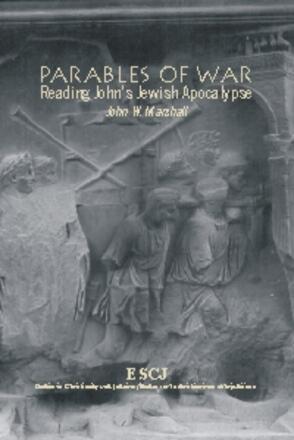
Description
What makes the Book of Revelation so hard to understand?
How does the Book of Revelation fit into Judaism and the beginning of
Christianity?
John W. Marshall proposes a radical reinterpretation of the Book of Revelation of John, viewing it as a document of the Jewish diaspora during the Judean War. He contends that categorizing the Book as "Christian" has been an impediment in interpreting the Apocalypse. By suspending that category, solutions to several persistent problems in contemporary exegesis of the Apocalypse are facilitated. The author thus undertakes a rereading of the Book of Revelation that does not merely enumerate elements of a Jewish "background" but understands the Book of Revelation as an integral whole and a thoroughly Jewish text.
Marshall carefully scrutinizes the problems that plague contemporary interpretations of the Book of Revelation, and how the category of "Christian" relates to such problems. He employs the works of Mieke Bal, Roland Barthes, Jacques Derrida, Jean Fran‡ois Lyotard, and Jonathan Z. Smith as theoretical resources. In the second half of his study, he provides detailed descriptions of the social and cultural context of the diaspora during the Judean War, and constructive rereadings of four key text complexes.
The result is a portrait of the Apocalypse of John that envisions the document as deeply invested in the Judaism of its time, pursuing rhetorical objectives that are not defined by the issues that scholars use to differentiate Judaism from Christianity.
Awards
- Short-listed, Canadian Society of Biblical Studies F.W. Beare Book Award 2002
Reviews
"A lively reinterpretation of John's Apocalypse.... [But] Marshall's fair, consistent interpretative paradigm is not the only aspect of the book that is particularly rigorous and sustained.... Marshall ... couches his critique of the dominance of the usual readings of the Apocalypse in the sophisticated terminology of the giant literary critics (especially Barthes, Culler, Jameson, and Derrida) and there is a levity to this treatment that belies the usual density."
- Laurence Broadhurst
"Important for several discussions in Revelation studies, including the date of the Apocalypse, its intended audience, and the relationship of that audience to first-century Judaism. The theoretical issues will also contribute to broader discussions in New Testament studies."
- Steven Friesen